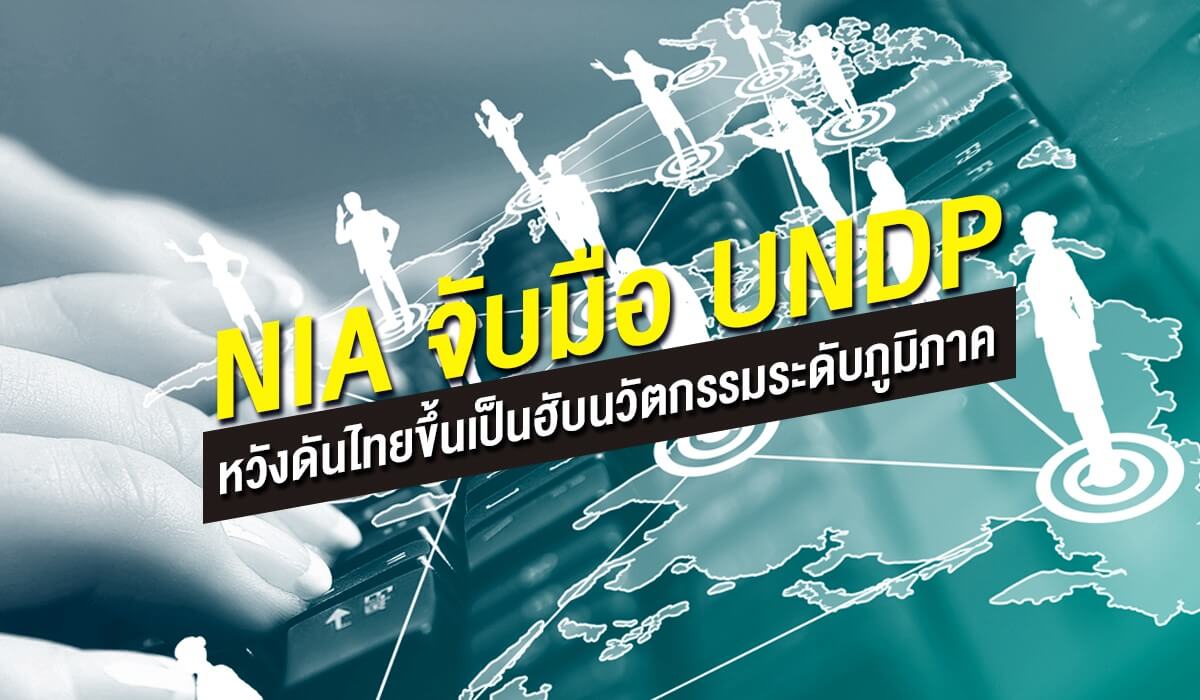The National Innovation Agency (Public Organization) or NIA took a group of potential Thai startups…

The National Innovation Agency (NIA) has joined forces with United Nations Development Programme (UNDP) to develop a platform to help businesses that focus on social innovation, aiming at promoting Thailand as the innovation hub of the region.
Dr Pun-Arj Chairatana, Director of the NIA, said creating social innovation is a major strategy emphasized by the global community, as it helps reduce social gaps and serves the needs of various organizations’ activities in a sustainable manner.
Therefore, the NIA has joined with the UNDP to develop platforms for social innovation businesses.
Social innovation, as defined by the World Economic Forum, is “the application of innovative, practical, sustainable, business-like approaches that achieve positive social and/or environmental change”. The overall idea of social innovation is to create products and ideas that make the communities we live in a better place.
To that end, there are several aspects of the cooperation agreement, including the development of innovation networks from both the private and government sectors that link their knowledge and activities to upgrade social innovation businesses.
The government sector will emphasize small and medium-sized enterprises (SMEs), startups and youth programs, encouraging them to take part in the development of organizational management by using technologies that enhance efficiency of public services provided by government.
The NIA and UNDP are establishing a “regional innovation centre” in Thailand as a centre for networking and knowledge exchange for the development of social innovation businesses within Thailand and across the region, especially in Cambodia, Laos, Myanmar and Vietnam, or the CLMV countries.
After signing and memorandum of cooperation, both agencies will kickoff the “Youth Co:Lab” project, which will encourage youth to create prototypes that promote social innovations, offer training programs, and arrange various competitions.
Both agencies will organize training by inviting experts from the UNDP to provide specific knowledge and consultations on development potential in innovation and jointly analyze the social impact of further development.
In the future, they expect to develop a database of social innovation businesses and link them via an online system. This platform will promote the work of each organization and allow users to search for solutions that can solve social problems.
Dr Pun-Arj said that for the past two years, the NIA has focused on platform development for socially innovative businesses that benefit society, have demonstrated value-added products, have helped the community promote efficiency and competitiveness, and lifted up the quality of living of local people.
“We aim to focus on nine areas of social innovations including 1) environmental conservation; 2) the linking between food, water and energy; 3) government and education sector; 4) finance, employment and social welfare; 5) sustainable agriculture; 6) urbanization; 7) health; 8) tourism and culture; and 9) disaster management,” he said.
There are four major programs that designed to support organizations in the network including providing a fund for incubator projects, innovation project expansion, a social innovation projects competition and an analysis of social impacts that serve the social needs in the nine areas.
So far, NIA has supported a total of 70 million baht funding to 90 social innovation projects. Its financial supports to those projects have helped them operating social innovation business with boosting value of business to 580 million baht.

